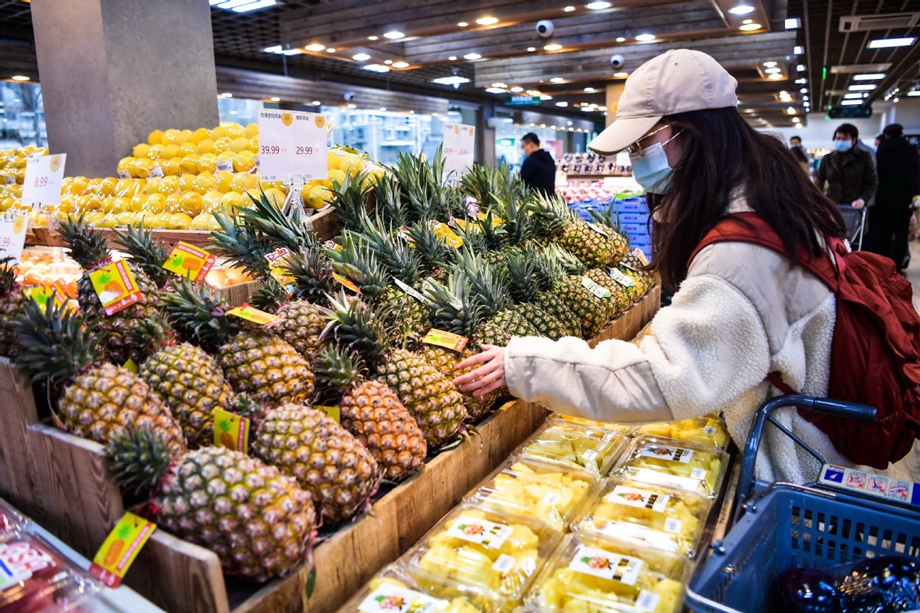China must ensure commodity supplies to stabilize prices
 A woman buys pineapples in a supermarket in Xuwen county, South China's Guangdong province, on March 6, 2021. [Photo/IC]
A woman buys pineapples in a supermarket in Xuwen county, South China's Guangdong province, on March 6, 2021. [Photo/IC]
China will continue to implement comprehensive policies to ensure commodity supply and price stability, the National Development and Reform Commission, the country's top economic planner, said recently.
At a time when China is facing problems ensuring stable supply and prices of bulk commodities, it needs to take policy measures to create a better environment for the macro economy to operate within an appropriate range.
China has made initial progress in ensuring commodity supply and price stability, with the growth rate of the producer price index having fallen for six consecutive months, but it should still face up to the impact of commodity price transmission on the industrial and supply chains and residents' lives.
The rise of commodity prices will affect the industrial chain, causing consumer prices to rise. The rising cost of raw materials will also squeeze enterprises' profits, suppress their procurement and investment activities, and reduce their research and development, which are not conducive to their technological and industrial transformation and upgrading and the improvement of global competitiveness.
Ever since the global economy regained some stability in 2021, global commodity prices have kept rising because of growing demands and slowing supplies. The Russia-Ukraine conflict since March has fueled a rise in the prices of oil, coal, natural gas and iron ore, and even caused the prices of edible oil and some industrial metals to skyrocket.
The COVID-19 pandemic has also had an impact on China's industry and supply chains, increasing the downward pressure on the economy. In the context of weakened market demand, the high prices of energy and raw materials will continue to hit the real economy and the profitability of market entities.
Being the world's largest manufacturing base, China's effort to ensure stable supply and prices will greatly help tackle inflation in the world. China should take comprehensive measures in terms of supply, circulation and expectations. It should boost domestic supply, stabilize the planted area of agricultural products to ensure adequate supply of grains and stabilize prices. It should expand the scope of long-term coal contracts and improve contractual fulfillment to reduce short-term fluctuations in the spot market and guide prices to operate within a reasonable range.
China should also standardize the market circulation order and crack down on price rises and hoarding. It needs to release market data in a timely manner to stabilize expectations and avoid market panic.
Editing by Wang Qing








